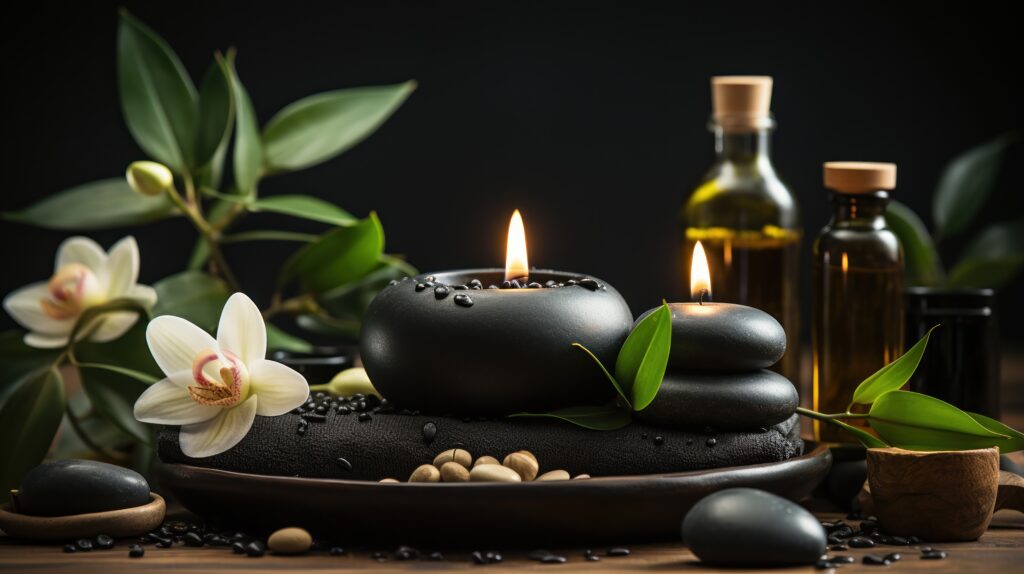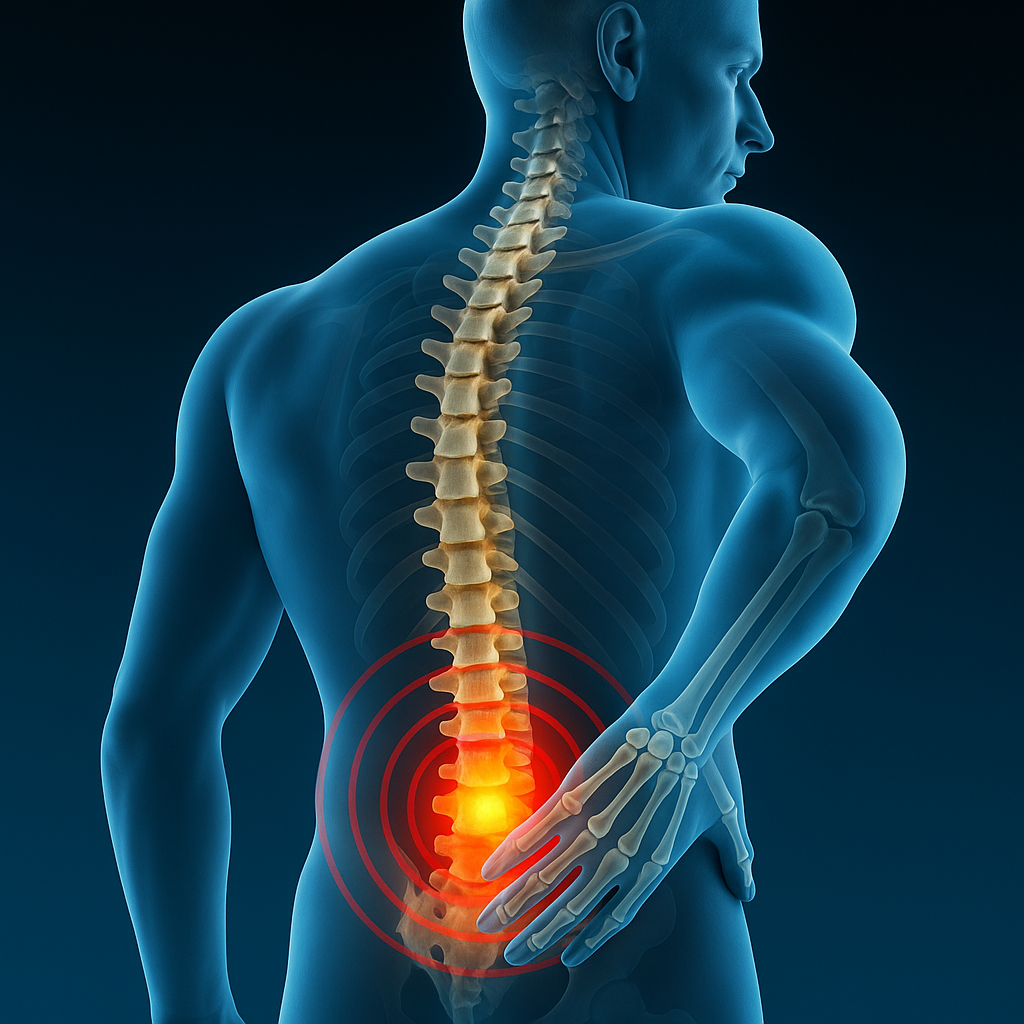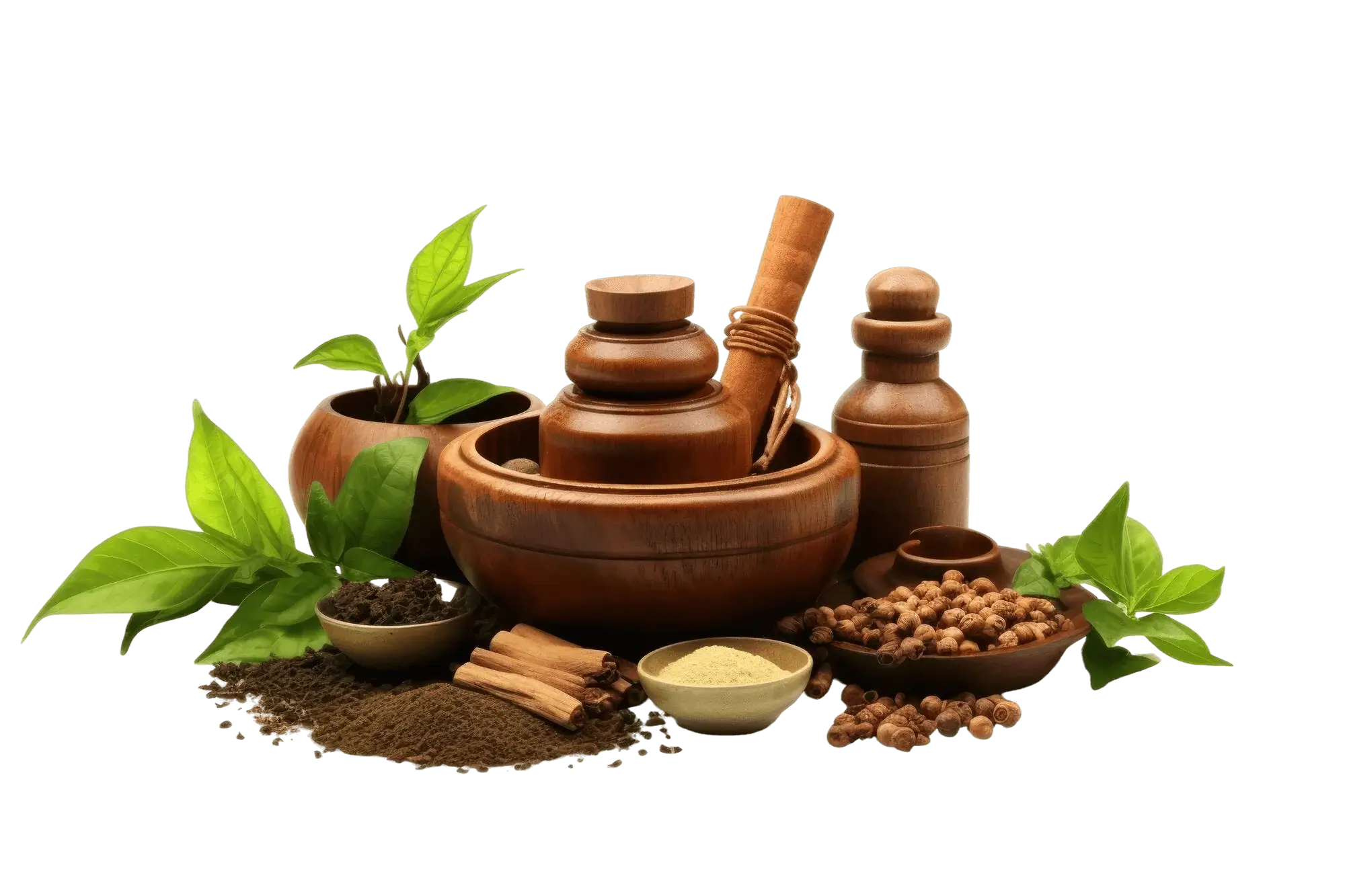Back pain is one of the most common health complaints worldwide, affecting people of all ages and lifestyles. Whether it’s the result of poor posture, a sedentary routine, stress, or underlying health issues, chronic back pain can significantly disrupt daily life. While conventional medicine often offers short-term relief through painkillers or surgery, more and more people are now turning to holistic approaches for long-lasting healing. Ayurveda, India’s ancient system of natural medicine, provides a powerful alternative rooted in restoring balance, eliminating toxins, and strengthening the body from within.
Kerala, the land of authentic Ayurveda, is renowned for its time-tested herbal treatments, therapeutic massages, and Panchakarma detox therapies that offer safe and sustainable relief from back pain. Unlike modern treatments that often suppress symptoms, Ayurvedic therapies focus on treating the root cause of pain—bringing balance to the body’s doshas (Vata, Pitta, and Kapha), improving digestion, and nourishing the spine and muscles.
In this blog, we’ll explore how Ayurvedic treatment for back pain in Kerala works, including a breakdown of symptoms, causes, treatment methods, dietary recommendations, and preventive tips—all designed to help you heal naturally and holistically.
Understanding the Symptoms of Back Pain
Back pain can present in various forms depending on its severity and underlying causes. Ayurveda recognizes that the manifestation of back pain is often a sign of an internal imbalance, especially of the Vata dosha, which governs movement, nerve impulses, and dryness in the body.
Common symptoms include persistent aching or stiffness in the lower, middle, or upper back, especially after prolonged sitting or physical exertion. People may also experience sharp, localized pain after lifting heavy objects or bending awkwardly. In more severe cases, back pain can radiate through the buttocks and legs, indicating nerve involvement such as in sciatica. Muscle spasms, tingling sensations, numbness, and limited range of motion are other symptoms that may suggest deeper musculoskeletal or neurological issues. Ayurveda views these symptoms as signs of dosha imbalance, poor digestion, and Ama (toxic buildup) in the body.
Why Choose Ayurvedic Treatment for Back Pain in Kerala?
Kerala is the birthplace of Ayurveda and is home to centuries-old traditions, experienced practitioners, and herbal medicines derived from its rich biodiversity. Unlike allopathy, which focuses on symptom suppression, Ayurveda addresses the root cause of back pain and restores balance in the body through personalized treatment.
Benefits of Ayurvedic Back Pain Treatment in Kerala:
- Long-term relief without side effects
- Personalized therapies based on body constitution (Prakriti)
- Herbal oils and decoctions made from fresh, native ingredients
- Detoxification of the body through Panchakarma
- Healing through a combination of herbal therapy, yoga, diet, and lifestyle changes
Types and Causes of Back Pain According to Ayurveda
Understanding the root causes of back pain is essential before starting treatment. Ayurveda classifies pain as a result of Vata vitiation, while also considering Kapha and Pitta factors when inflammation, stiffness, or swelling are present.
Back pain can be classified into the following types:
- Muscular/Mechanical Pain: Often due to poor posture, muscle strain, or overuse. Ayurveda relates this to aggravated Vata causing dryness and rigidity in muscles and joints.
- Degenerative Pain: Common in aging populations, where conditions like osteoarthritis or lumbar spondylosis lead to disc wear and joint degeneration.
- Inflammatory Pain: Conditions such as ankylosing spondylitis, where inflammation in spinal joints causes chronic pain and stiffness. Pitta-Kapha imbalance may be involved here.
- Nerve-related Pain: As in sciatica or herniated discs, where compressed nerves result in radiating pain, numbness, or weakness.
- Referred Pain: Arising from internal organs or systemic imbalances, often mimicking musculoskeletal pain.
Contributing factors include sedentary lifestyle, lack of physical activity, poor diet, obesity, improper lifting techniques, emotional stress, constipation, and trauma. From an Ayurvedic perspective, these factors lead to the accumulation of Vata dosha, which then localizes in weak tissues, especially around the spine and joints, causing pain and dysfunction.
How Ayurvedic Treatments Work for Back Pain
Ayurveda approaches back pain not as an isolated condition, but as a systemic imbalance involving physical, emotional, and dietary factors. The Ayurvedic method involves diagnosing the dominant dosha involved, evaluating digestive health (Agni), and assessing toxin buildup (Ama). Based on these, a personalized treatment plan is devised that includes herbal therapies, detoxification, rejuvenation, and dietary regulation.
A core component of Ayurvedic back pain treatment is external therapy, especially oil-based treatments, which soothe aggravated Vata and nourish deep tissues. Therapies like Abhyanga (herbal oil massage), Kati Basti (oil pooling on the lower back), Pizhichil (oil stream therapy), and Elakizhi or Podikizhi (herbal bundle massages) are used to reduce pain, relax muscles, and rejuvenate the spine. These are combined with internal medications like herbal decoctions, tablets, and oils containing ingredients such as Ashwagandha, Rasna, Guggulu, Shallaki, and Dashamoola.
In chronic cases, Ayurvedic detoxification through Panchakarma is recommended. Panchakarma therapies like Vasti (medicated enema), Swedana (steam therapy), and Snehana (internal oleation) work at a deeper level to expel toxins and restore dosha balance. These therapies not only treat the physical symptoms but also enhance digestion, improve immunity, and calm the nervous system, leading to comprehensive healing.
Benefits of Ayurvedic Treatments for Back Pain
Ayurvedic therapies provide a host of benefits beyond just pain relief. These treatments are known for their long-lasting effects, holistic impact, and minimal side effects, making them ideal for both acute and chronic back issues.
Key benefits include:
- Addressing the root cause: Ayurveda treats the underlying dosha imbalances rather than masking symptoms.
- Reducing inflammation naturally: Herbal oils and medicines soothe inflamed tissues and nerves without synthetic chemicals.
- Enhancing muscle strength and flexibility: Regular oil massages and yoga improve spinal support and posture.
- Promoting detoxification: Panchakarma cleanses the body of toxins that accumulate over time and aggravate back pain.
- Improving overall health: Better digestion, sound sleep, improved energy levels, and mental clarity often follow Ayurvedic treatment.
- Sustainable healing: With proper lifestyle support, many people experience long-term remission from recurring back pain.
Unlike temporary fixes, Ayurveda provides a natural, sustainable pathway to a pain-free and active life.

Diet and Eating Habits to Support Back Pain Relief
In Ayurveda, diet plays a foundational role in healing back pain. A proper diet improves digestion, reduces toxin formation, and nourishes joints and muscles from within. The focus is on a Vata-pacifying diet, which emphasizes warm, moist, and grounding foods that help lubricate the joints and calm the nervous system.
Recommended foods include:
- Warm, freshly cooked meals such as soups, stews, and porridges
- Whole grains like rice, wheat, barley, and oats
- Healthy fats such as ghee, sesame oil, and coconut oil
- Cooked vegetables like carrots, beets, squash, pumpkin, and spinach
- Digestive spices like ginger, turmeric, cumin, fennel, and ajwain
- Milk with turmeric or nutmeg at bedtime for nerve nourishment
Foods to avoid:
- Cold and raw foods, especially salads and ice creams
- Processed, deep-fried, and leftover meals
- Red meat, canned foods, and preservatives
- Excessive caffeine, alcohol, and carbonated drinks
- Refined flour and sugar
It is also essential to drink warm water or herbal teas throughout the day to keep Vata in check. Herbs like ginger, coriander, and cumin can be added to hot water for improved digestion and detoxification.
Lifestyle Tips to Prevent and Manage Back Pain
Ayurveda emphasizes Dinacharya (daily routine) and Ritucharya (seasonal routine) to maintain overall health. Incorporating a few changes in your daily habits can help prevent recurring back pain.
Daily Routine for Back Pain Relief:
- Wake up early (before sunrise)
- Perform gentle yoga or stretching exercises
- Self-abhyanga (oil massage) before bath
- Maintain upright posture while sitting or working
- Use ergonomic furniture
- Practice deep breathing and meditation to manage stress
Yoga Poses Recommended:
- Bhujangasana (Cobra Pose)
- Marjariasana (Cat-Cow Stretch)
- Balasana (Child’s Pose)
- Setu Bandhasana (Bridge Pose)
Avoid forward bends and high-impact exercises until pain reduces.
Preventive Measures for Back Pain in Ayurveda
Ayurveda strongly emphasizes prevention. A balanced daily routine (Dinacharya), seasonal regimen (Ritucharya), and mindful living practices can go a long way in preventing back pain.
Here are key preventive measures:
- Daily Oil Massage (Abhyanga): Applying warm sesame oil on the body, especially the spine and joints, helps maintain flexibility and reduce Vata aggravation.
- Maintain Proper Posture: Sit straight with lumbar support, avoid slouching, and take regular breaks from sitting.
- Yoga and Stretching: Gentle movements strengthen spinal muscles and improve blood flow. Poses like Bhujangasana (Cobra Pose), Marjariasana (Cat-Cow Stretch), Balasana (Child’s Pose), and Setu Bandhasana (Bridge Pose) are beneficial.
- Avoid lifting heavy weights improperly: Bend your knees, not your back, and maintain a straight spine while lifting.
- Get Adequate Rest: Sleep on a firm mattress and go to bed before 10 PM to allow the body to repair itself.
- Manage Stress: Meditation and Pranayama are excellent for calming the nervous system, reducing muscle tension, and maintaining hormonal balance.
Conclusion: A Natural and Holistic Way to Heal Back Pain
Back pain is not merely a physical discomfort—it reflects deeper imbalances within the body and mind. The Ayurvedic system offers a holistic, time-tested path to healing, addressing not just symptoms but their root causes. Whether through herbal therapies, Panchakarma detox, nourishing food, or lifestyle corrections, Ayurvedic Wellness Centre Kerala provides a natural roadmap for lasting relief and wellness.
At Elaa Ayurveda and Rehab, these time-honored healing principles are applied with care and expertise, offering individualized therapies that support deep, long-term recovery. By aligning your routine with Ayurvedic principles and receiving the right therapeutic support, you can experience profound improvements in mobility, energy, and overall vitality—without depending on painkillers or surgery.
Frequently Asked Questions (FAQ)
- Can Ayurveda cure chronic back pain permanently?
Ayurveda aims to provide long-term relief by treating the root causes of back pain. While it may not offer an instant cure, it significantly reduces recurrence when followed consistently.
- How soon can one expect relief from Ayurvedic back pain treatment?
Mild cases may respond within a week, while chronic conditions could take several weeks to a few months, depending on the individual’s constitution and discipline with diet and therapy.
- Is Panchakarma mandatory for all types of back pain?
Not necessarily. Panchakarma is recommended for chronic and toxin-related pain. For mild cases, external therapies and herbal remedies may suffice.
- Are there any side effects of Ayurvedic treatments?
When administered correctly under professional guidance, Ayurvedic treatments have minimal to no side effects. However, self-medication or unsupervised detox can be harmful.
- Can I continue my regular work during treatment?
In many cases, yes. However, during intensive Panchakarma, rest is advised. A therapist will guide you on physical activity levels suitable to your condition.
- What lifestyle changes are needed along with treatment?
Regular exercise, a healthy diet, proper sleep, good posture, and mental relaxation are essential to support Ayurvedic healing and prevent relapse.



